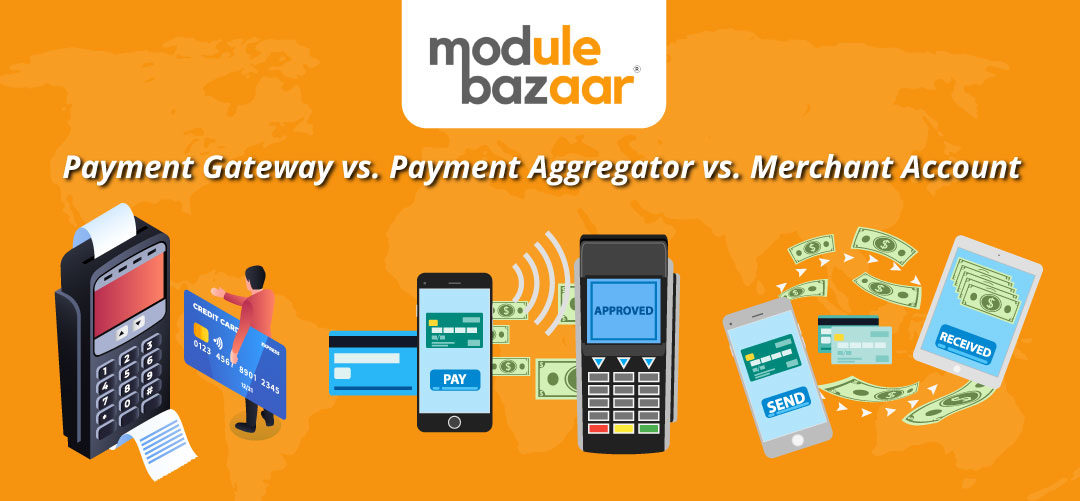Share the post "Payment Gateway vs. Payment Aggregator vs. Merchant Account"
Businesses today are transitioning online. They are going digital in all aspects. While the whole borough of doing business has become totally web-based, payments also have remarkably seen that dawn of online trends.
As the trend of doing business online will not go out of fashion for some years now, it is time to turn our attention towards the payment gateway process.
Every business operating online is either opting for a payment service provider, merchant account, and payment gateway. It is seen that in many cases, two of them overlap with each other making the transactions even easier. In this blog post, we will break down the key differences between them and draw parallels about their similarities.
What Is A Payment Gateway?
A payment gateway is a technological component that helps in securely collecting all the transactions done online. A payment gateway is one of the top eCommerce integrations as it receives the payment from the user’s end and transfers to the merchant’s account.
One thing that stands out for the payment gateway is that it is fully encrypted and thus allows for a verified process from all aspects. Another thing that restricts the payment gateway from the rest two is that it helps users get instant access even before the account gets approved from the bank side. This makes it devoid of any fraudulent transactions as people have to feed in the bank and other details to get the access.
Read alos:- Factors consider before selecting a Payment Gateway for your eCommerce store
Who Is a Payment Aggregator?
A payment aggregator is also an online service provider with very much similarity to the payment gateway. However, there is one fine line of difference between the two. A payment aggregator allows merchants to start accepting the payment without having a merchant account. Also, payment aggregators and PSP’s help create a sub-account within one big merchant account and aggregates all the other sub-merchants, which is why they are known as payment aggregators.
Today, payment aggregators are known as the fastest method to make online payments with thousands of transactions being done online. A PSP account usually takes a long response time and sometimes, due to the high risk of fraudulent transactions, your account may be suspended for a while.
What Is a Merchant Account?
A merchant account is nothing but a bank account, which is also a part of the eCommerce integration for online transactions. The account holds the utmost importance in the eCommerce sector because it is in this account that online sales are collected.
Merchant accounts have individual MIDs that can only be provided by the payment processors or by a bank. Merchant accounts are further differentiated into two parts viz regular merchant account and high-risk merchant account.
A regular merchant account is the one used for common types of businesses, such as Saas, e-commerce, and shops. On the other hand, a high-risk merchant account has a relatively high risk of chargeback and refund claims from the customers.
Conclusion:
The world is gradually inching towards a more commercialized space. In the coming years, the scenario will further change and would be channelized by online payments.
In this fast-paced, competitive world, if you are planning to build a business from the core, then the above three online payment methods are a must for you to adhere by.
Therefore, whenever you would want to set up a merchant account, then a dedicated service manager will be assigned to you in case of further queries and troubles. This step will help you call the bank directly and get answers if your customers feel any trouble from their side.


